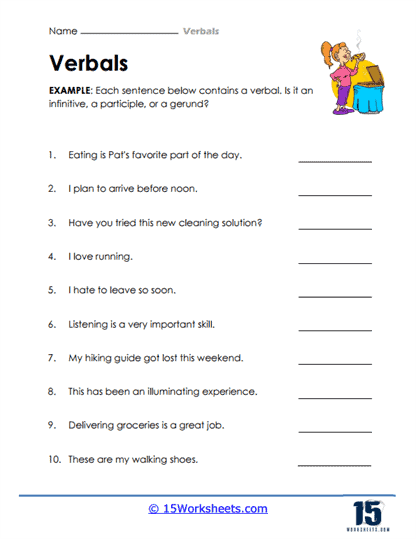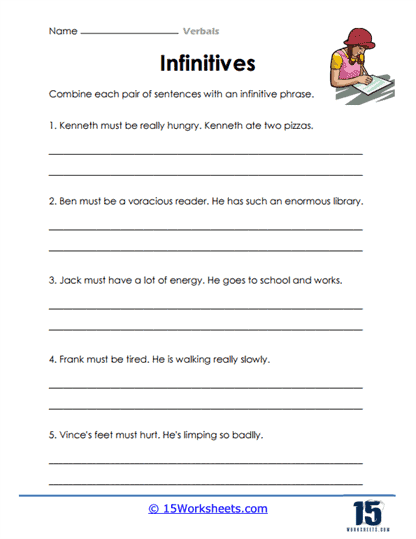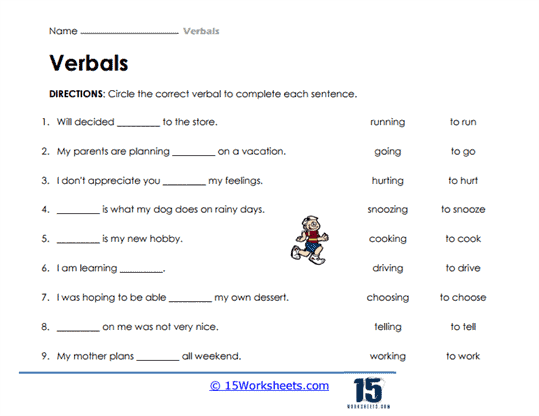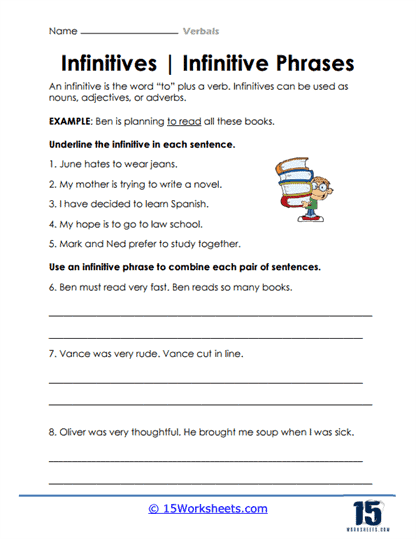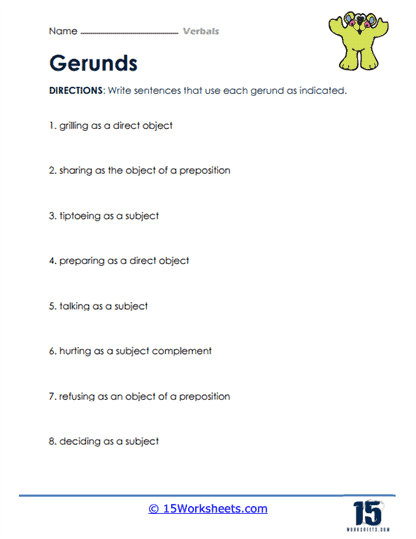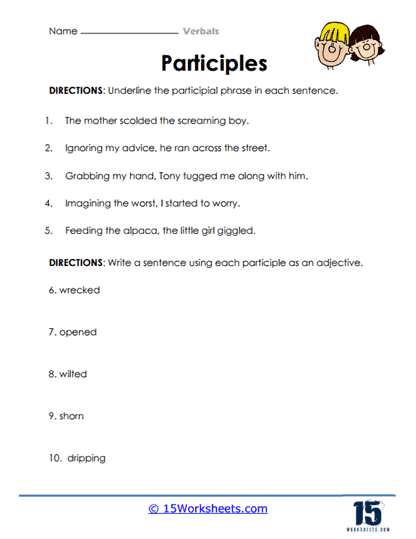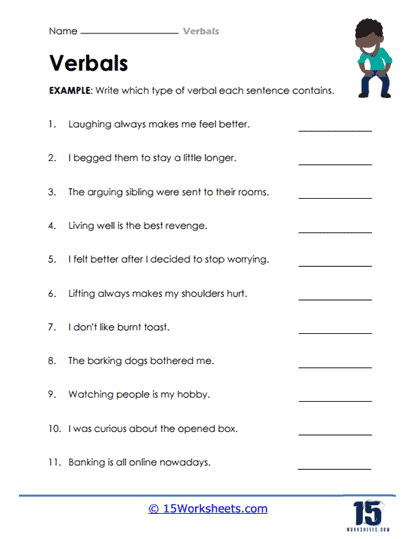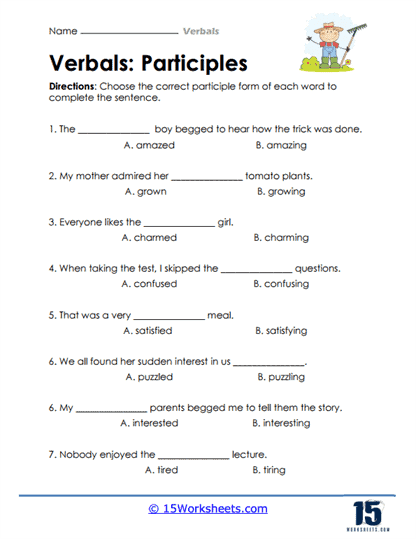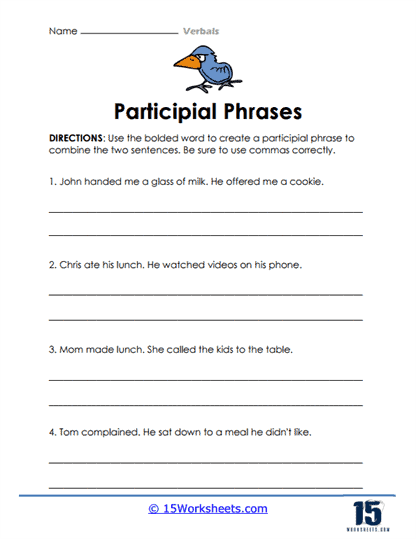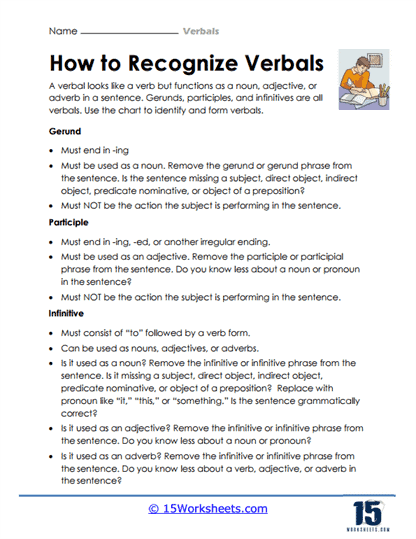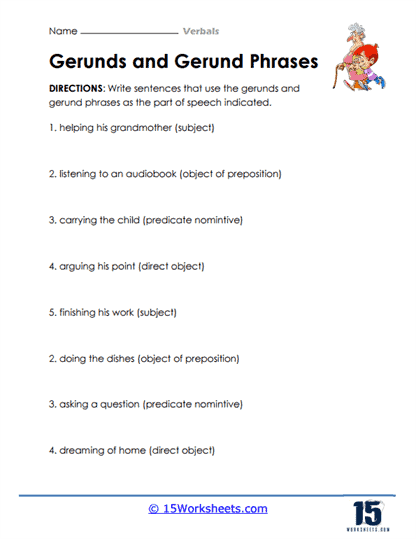Verbals Worksheets
About These 15 Worksheets
These worksheets provide exercises and practice opportunities for students to identify and work with gerunds, participles, and infinitives. These worksheets may include sentences or paragraphs with missing or underlined verbals, and students are asked to identify the type of verbal and its function within the sentence. Through these activities, students can improve their understanding of verbals and their ability to use them correctly in their writing and communication.
What Are the Different Types of Verbals?
In English grammar, there are three main types of verbals: gerunds, participles, and infinitives.
Gerunds are verb forms that act as nouns, ending in -ing. For example: “Swimming is my favorite activity.” In this sentence, “swimming” is a gerund functioning as the subject.
Participles are verb forms that act as adjectives, typically ending in -ed or -ing. For example: “The broken vase needs to be repaired.” Here, “broken” is a participle modifying the noun “vase.”
Infinitives are the base form of a verb, often preceded by “to,” and can function as nouns, adjectives, or adverbs. For example: “She wants to sing in the choir.” In this sentence, “to sing” is an infinitive acting as the object of the verb “wants.”
How Do You Identify Verbals?
The verbal is identified, along with its type (gerund, participle, or infinitive) and its function within the sentence (subject, adjective, or object). Remember that gerunds always function as nouns, participles as adjectives, and infinitives can function as nouns, adjectives, or adverbs. Verbals can add variety, depth, and nuance to sentences, and understanding how to identify and use them correctly can enhance your writing and communication skills. Here are 5 examples for you:
Running is good exercise.
Verbal: Running, Type: Gerund, Function: Subject
The broken vase needs to be repaired.
Verbal: broken, Type: Participle, Function: Adjective (modifying “vase”)
I love to read books.
Verbal: to read, Type: Infinitive, Function: Object of the verb “love”
Singing in the shower brings me joy.
Verbal: Singing, Type: Gerund, Function: Subject
He arrived late, missing the beginning of the movie.
Verbal: missing, Type: Participle, Function: Adjective (modifying “he”)


